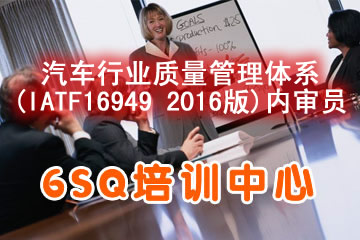China Daily
China to maintain prudent monetary policy in 2013
中国在2013年保持稳健的货币政策
Updated: 2012-12-17 10:29
BEIJING - China will maintain a proactive fiscal policy and prudent monetary policy in 2013, according to a statement issued Sunday after the closure of a two-day central economic work conference.
根据两天的中央经济会议结果,中国将在2013年保持积极的财政政策和稳健的货币政策
The country will "properly expand the amount of social financing to maintain a moderate increase in loan issuances" and keep the yuan's exchange rate "basically stable" next year, according to the statement.
报告指出,明年国家将适当扩大融资以保持适度的贷款和保持人民币汇率基本稳定。
The conference, which sets the tone for economic policymaking in the year ahead, also resulted in an agreement to guard against potential risks in the country's fiscal and financial sectors, it said.
他说,会议对未来的一年经济政策进行了基本的定调,同时使得国家的财政和财政部门提防潜在的风险
China has kept a proactive fiscal policy since late 2008, when the country unveiled a 4-trillion-yuan ($634.92 billion) stimulus package to counter the adverse impact of the global financial crisis. Its monetary policy has been prudent since late 2010.
中国至2008年后期实施积极的财政政策....
The country's annual economic growth slipped to 7.4 percent in the third quarter this year, slowing for seven quarters in a row.
To spur growth, China's central bank twice trimmed benchmark interest rates and commercial banks' reserve requirement ratios in the first seven months of the year. But it has since resisted further cuts, preferring to use open market operations instead.
自娱自乐。。。发现中文读不通啊
时间到了,上班
翻译错了的大家指正一下并翻译过来
没翻译的有时间的朋友翻译一下
中国在2013年保持稳健的货币政策
Updated: 2012-12-17 10:29
BEIJING - China will maintain a proactive fiscal policy and prudent monetary policy in 2013, according to a statement issued Sunday after the closure of a two-day central economic work conference.
根据两天的中央经济会议结果,中国将在2013年保持积极的财政政策和稳健的货币政策
The country will "properly expand the amount of social financing to maintain a moderate increase in loan issuances" and keep the yuan's exchange rate "basically stable" next year, according to the statement.
报告指出,明年国家将适当扩大融资以保持适度的贷款和保持人民币汇率基本稳定。
The conference, which sets the tone for economic policymaking in the year ahead, also resulted in an agreement to guard against potential risks in the country's fiscal and financial sectors, it said.
他说,会议对未来的一年经济政策进行了基本的定调,同时使得国家的财政和财政部门提防潜在的风险
China has kept a proactive fiscal policy since late 2008, when the country unveiled a 4-trillion-yuan ($634.92 billion) stimulus package to counter the adverse impact of the global financial crisis. Its monetary policy has been prudent since late 2010.
中国至2008年后期实施积极的财政政策....
The country's annual economic growth slipped to 7.4 percent in the third quarter this year, slowing for seven quarters in a row.
To spur growth, China's central bank twice trimmed benchmark interest rates and commercial banks' reserve requirement ratios in the first seven months of the year. But it has since resisted further cuts, preferring to use open market operations instead.
自娱自乐。。。发现中文读不通啊
时间到了,上班
翻译错了的大家指正一下并翻译过来
没翻译的有时间的朋友翻译一下
没有找到相关结果
已邀请:





21 个回复
质量雨 (威望:0) (上海 嘉定区) 机械制造 员工 - improve my English in 2...
赞同来自:
秘密公开了 更新:2013年1月14日 11:19
Chinese retailers are increasingly looking to sell private label products to gain an edge
中国零售商开始增加销售私有品牌产品以获得利润
Rene Pieter Bulthuis recently went hunting for razors and blades in Shanghai, despite being freshly shaven and couth. He spent all day in and out of stores, including Wal-Mart, Lotte Mart and Tesco, but couldn't find what he was looking for. Amid the fleet of Gillettes and big name brands, he was searching for something cheaper - that elusive private label.
Rene Pieter Bulthuis最近在上海区寻找剃须刀和刀片,尽管打扮的精神饱满和温文尔雅。他花了一天的时间在沃尔玛、乐天玛特和乐购各商场之间来回穿梭。但是他并没有找到他要找的东西。尽管有很多大品牌,但是他要找更便宜的产品,令人难以忘记的私有品牌。
Bulthuis is the CEO of Feintechnik, a German manufacturer of razors and blades, and like many executives of foreign manufacturers, he sees an opening for his products.
Bulthuis是一个德国剃须刀和刀片制造商Feintechnik的CEO,像所有国外的制造企业一样,他也想在中国打开产品市场。
"Although the private label is still a little bit too early for the Chinese market, I have seen the opportunity of expanding my business in this marketplace," he says.
他说,景观私有品牌目前在中国还是起步阶段,我已经看到了扩展我的品牌的商业机会。
上班了,接了个电话,少了两句
现在买票回家,压力很大啊
While private label products, which are manufactured or provided by one company for another company's brand and are generally cheaper in price, are popular among consumers in the United States, claims Deloitte, they have been slow to develop in China.
But retailers in China, where only foodstuffs are commonly sold under private labels, are branching into new product territory. They are starting to stock their shelves with more private label brands from Chinese manufacturers, who have begun to shift away from making cheap products for overseas retailers.
From January to September last year, China totaled 14.94 trillion yuan ($2.4 trillion; 1.84 trillion euros) in retail sales of consumer goods, according to the Ministry of Commerce. But total sales of private label brands have been miniscule since the Shanghai Kaikai Department Store introduced its own line of apparel in 1987.
"In China, private labels just account for less than 5 percent of all supermarket sales," says Brian Sharoff, president of the US-based Private Label Manufacturers Association.
In five European countries, including Spain, the United Kingdom and Germany, sales of private label products make up more than 40 percent of total sales at supermarkets. In the US, total sales of private labels in supermarkets came in at $59.9 billion (45.95 billion euros), according to the Nielsen Company, for the 52-week period ending Dec 24, 2011. That is an increase of $2.9 billion on the previous year.
"In Western countries, the economic recession has attracted new customers looking for cheaper prices and good quality. They are not just focusing on international brands," Sharoff says.
In emerging markets, however, consumers are still hunting for top brands and are not fully aware of private labels. That has opened a path for overseas retailers, manufacturers and suppliers.
Metro Cash and Carry, the German self-service wholesale retailer, has opened 50 stores in China since its first store in Shanghai in 1996. Seven years ago, it began offering more private label products in China.
Sharoff says that retailers who are looking to differentiate themselves from competitors and are aiming to build customer loyalty should venture out with private labels.
"We have developed six private label brands in our stores and sales (of private label products) now account for 14 percent of our total turnover, while profits from private label products are over 30 percent," says Yang Weixin, head of a management department at Metro Jinjiang Cash and Carry Co.
Metro Cash and Carry is aiming to ramp up private label offerings by 20 percent in less than five years. When it comes to choosing a supplier, Yang says they tend to work with overseas companies that produce foods, such as milk, that Chinese domestic producers have had a poor history of producing because of numerous food safety scandals.
"The reputation of imported goods is better compared with local manufacturers," Yang says